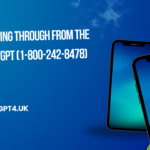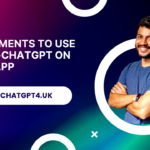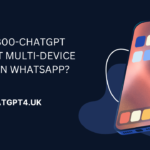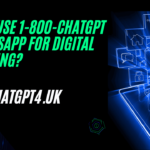A Virtual Private Network (VPN) is a tool that allows users to access the internet securely and privately. With the rise of cyber threats and privacy concerns, VPNs have become increasingly popular among individuals and businesses alike. As a ChatGPT troubleshooter and content writer, I will explain what VPN is and how it can benefit ChatGPT.
What is a VPN?
A VPN is a service that creates a secure and encrypted connection between a user’s device and the internet. When a user connects to a VPN, their internet traffic is routed through an encrypted tunnel, which prevents anyone from intercepting or monitoring their online activity. This makes it an effective tool for protecting privacy, accessing geo-restricted content, and bypassing censorship.
How does VPN work?
When a user connects to a VPN, their device establishes a connection with the VPN server. The VPN server then encrypts the user’s internet traffic and sends it through the tunnel to the destination website or service. This process ensures that the user’s online activity is hidden from prying eyes, such as hackers, advertisers, or government agencies.
List of Best VPN for ChatGPT
If you’re concerned about online privacy and security while using ChatGPT, a virtual private network (VPN) can help you protect your data and identity. VPNs work by encrypting your internet connection and routing it through a remote server, which can make it difficult for anyone to monitor or intercept your online activity. However, not all VPNs are created equal, and choosing the right one can make a big difference in terms of performance, security, and ease of use.
Here are some of the best VPNs for ChatGPT based on their security features, server network, and user reviews:
- ExpressVPN – offers fast speeds and strong encryption, with servers in over 90 countries.
- NordVPN – has a vast network of servers and advanced security features such as double encryption and an automatic kill switch.
- CyberGhost VPN – provides user-friendly apps and powerful privacy features such as ad and malware blocking, and over 6,000 servers in 90 countries.
- Private Internet Access – known for its strict no-logs policy and advanced security features, such as split tunneling.
- Surfshark VPN – offers unlimited simultaneous connections and a unique CleanWeb feature that blocks ads and malware.
Ultimately, the best VPN for ChatGPT will depend on your specific needs and preferences. Before choosing a VPN, make sure to evaluate its security and privacy features, speed and performance, server network, and user reviews.
Why do you need VPN for ChatGPT?
As a large language model, ChatGPT processes a significant amount of data every day. This data includes personal information, conversations, and user queries, among other things. Therefore, it is crucial to protect ChatGPT’s privacy and security to ensure that its users’ data remains safe. VPN can help achieve this by providing an additional layer of security and privacy.
Benefits of using VPN for ChatGPT
Here are some benefits of using VPN for ChatGPT:
- Security: VPN encrypts ChatGPT’s internet traffic, making it difficult for hackers to intercept and steal the data. This ensures that user conversations and queries are secure and private.
- Privacy: VPN prevents ISPs, advertisers, or government agencies from monitoring ChatGPT’s online activity. This protects user privacy and prevents third-party entities from collecting and using their data without their consent.
- Bypass censorship: VPN can bypass internet censorship and access geo-restricted content. This ensures that ChatGPT remains accessible to users from different regions, regardless of the restrictions in place.
- Improved performance: VPN can improve ChatGPT’s performance by reducing latency and increasing bandwidth. This can result in faster response times and a better user experience.
How to choose the right VPN for ChatGPT
Choosing the right VPN for ChatGPT can be a daunting task. Here are some factors to consider when selecting a VPN:
- Security: Look for a VPN that uses robust encryption protocols, such as OpenVPN or IKEv2. The VPN should also have a no-logs policy, which means that it does not collect or store any user data.
- Speed: A VPN can slow down internet speeds due to the encryption and routing processes. Look for a VPN that has high-speed servers and offers unlimited bandwidth.
- Compatibility: Ensure that the VPN is compatible with ChatGPT’s operating system and devices.
- Server locations: Look for a VPN that has servers in the locations where ChatGPT’s users are located. This ensures that users can access ChatGPT without any restrictions or latency issues.
- Customer support: Choose a VPN that offers reliable customer support, such as live chat or email support. This ensures that any issues can be resolved quickly and efficiently.
- Multi-device support: Look for a VPN that offers support for multiple devices, such as smartphones, tablets, and computers. This ensures that users can access ChatGPT from any device while maintaining security and privacy.
- Price: VPNs can range in price, from free to premium services. Consider the budget when selecting a VPN, but keep in mind that a premium VPN may offer better security and performance features.
- User-friendly interface: A user-friendly interface makes it easy to connect to a VPN, switch servers, and adjust settings. This is especially important for users who are not tech-savvy.
- Kill switch: A kill switch is a feature that automatically disconnects the device from the internet if the VPN connection drops. This ensures that the user’s online activity remains private and secure.
- Network size: A larger network size allows users to connect to more servers in different locations, which can improve speed and accessibility.
- Protocol options: Look for a VPN that offers multiple protocol options, such as TCP, UDP, and IKEv2. This allows users to select the protocol that best suits their needs, such as speed or security.
- Logging policies: Check the VPN’s logging policies to ensure that they do not collect or store any user data. This protects user privacy and prevents the VPN from sharing user data with third-party entities.
- Reputation: Choose a VPN with a good reputation, as this indicates that the VPN is reliable and trustworthy. Look for reviews and ratings from reputable sources, such as tech publications or online forums.
Conclusion
In conclusion, VPN can be a valuable tool for ChatGPT to enhance security, privacy, and accessibility. Choosing the right VPN requires careful consideration of factors such as security, speed, compatibility, server locations, and customer support. By using a VPN, ChatGPT can ensure that its users’ data is secure and private, and that it remains accessible to users from different regions.
FAQs
Q: Why should I use a VPN for ChatGPT?
A: VPNs can provide enhanced security and privacy, as well as access to ChatGPT from different locations. This is especially useful for users who need to access ChatGPT while traveling or using public Wi-Fi.
Q: How does a VPN work with ChatGPT?
A: A VPN encrypts the user’s internet connection and routes it through a remote server, hiding the user’s IP address and location. This makes it difficult for hackers or other third parties to intercept the user’s online activity, and allows the user to access ChatGPT from different locations.
Q: Is it legal to use a VPN with ChatGPT?
A: Yes, it is legal to use a VPN with ChatGPT. However, some countries may restrict or ban the use of VPNs, so users should check local laws before using a VPN.
Q: Will a VPN slow down my internet connection?
A: It is possible for a VPN to slow down internet speed, as the encryption and routing process adds extra steps to the data transmission process. However, a high-quality VPN with optimized servers should have minimal impact on internet speed.
Q: Can a VPN protect me from malware or viruses?
A: While a VPN can provide some protection against malware or viruses, it is not a substitute for antivirus software or other security measures. Users should still take steps to protect their devices from online threats, such as installing antivirus software and avoiding suspicious websites or downloads.
Q: How do I choose the right VPN for ChatGPT?
A: Consider factors such as security, speed, compatibility, server locations, customer support, multi-device support, price, user-friendly interface, kill switch, network size, protocol options, logging policies, and reputation when selecting a VPN for ChatGPT.
Q: Can I use a free VPN with ChatGPT?
A: While free VPNs are available, they may have limitations such as data caps or slower speeds. Additionally, some free VPNs may not be as secure or reliable as paid VPNs. Users should carefully research and evaluate any free VPN before using it with ChatGPT.
Q: Do I need technical knowledge to use a VPN with ChatGPT?
A: Most VPNs offer a user-friendly interface and do not require technical knowledge to use. However, users should still be familiar with basic internet and computer concepts, such as how to connect to a Wi-Fi network and how to install software.








1 thought on “Best VPN for ChatGPT in 2023”